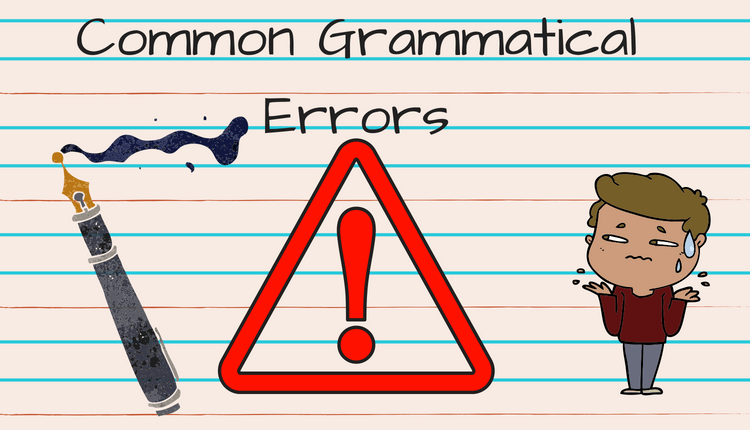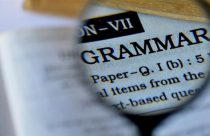Avoid These Common Grammatical Errors in Your Paper

Researchers truly feel a sense of worth when their manuscript gets published. However, a researcher’s heart can sink when a manuscript is rejected due to grammatical errors. This article will analyze some of the common grammatical errors found in manuscripts. When researchers learn to avoid these blunders by revising their work, they increase their odds of manuscript acceptance.
Common Errors that Lead to Manuscript Rejection
- Inadequate Literature Review: Some researchers are clueless when it comes to finding literature that adds substance to their work. Usually, manuscripts are expected to have solid coverage. Using outdated literature could result in outright rejection.
- Research and Methodological Errors: Every research work has a methodology that the author (researcher) is expected to follow. The complex nature of research analysis could cause some authors to present inadequate data analysis. Inadequate data immediately question the authenticity of any manuscript.
- Plagiarism of Material and References: Plagiarism is a common crime in the academic community, and it has serious consequences. This grave error includes manuscripts that have word for word text from existing literature. In most cases, plagiarized work gets automatically flagged for rejection.
There are many tools available that can help you ensure that your writing is checked for all these common grammar errors. Once such tool that we recommend is Trinka – built specially for academic and technical writing. Trinka checks your writing for advanced grammar errors and suggests corrections as well as language enhancements that significantly improve the writing quality of your paper. Let’s have a look at the grammatical errors commonly made by most people.
Common Grammatical Errors
Typos
Typos affect the credibility of a manuscript. Some grammatical errors can even alter the meaning of a statement. Avoid this error by taking the time to edit your work carefully.
Colon
Usually, a list of items begins with a colon.
Incorrect: I had to purchase the following books from the bookstore, English, Mathematics and Physics textbooks.
Correct: I had to purchase the following books from the bookstore: English, Mathematics and Physics textbooks.
However, there is a rule for the use of colons in lists. If the part of the sentence before the colon seems to be incomplete without the other part, then you must avoid using a colon.
Incorrect: Her favourite colors are: red, black and white.
Correct: Her favourite colors are red, black and white.
Semicolon
Semicolons generally separate two sentences that are closely related. However, incorrect usage of semicolons should be avoided.
Incorrect: The frog is green, it is also bumpy.
Correct: The frog is green; it is also bumpy.
Commas
It’s wrong to use a comma to combine two independent clauses.
Incorrect: I climbed a hill, it was steep.
Correct: I climbed a hill. It was steep.
Correct: I climbed a hill; it’s steep.
Misplacing or omitting commas can alter the meaning of a sentence.
Incorrect : Nonetheless I had to go to the hospital.
Correct: Nonetheless, I had to go to the hospital.
Commas are also used after abbreviations such as i.e., e.g., etc. Most style guides prefer using comma after such abbreviations.
Apostrophes
Correct usage of apostrophe can completely change the meaning of the sentence. They are used to denote the possessive form, contractions etc. Plural forms contain no apostrophes.
Incorrect: It’s all your’s!
Correct: It’s all yours!
The word “it’s” and “its” spell the same, but have different meaning. The word “it’s” stands for “it is” or “it has”. Although the word “its” stands for a possessive form, it does not have apostrophe.
Incorrect: The dog found it’s bone.
Correct: The dog found its bone.
Periods Before or After Quotes
Periods always mark the end of a sentence. Missing out on putting the period is common when writers are in a hurry. More important than that is the dilemma whether to place the period before or after quotes. Different style guides follow either of these rules. In American English, the period (for that matter, any of the punctuation marks) comes before quotes, while in British English, it is the opposite.
American English: He said, “They were coming this way.”
British English: He said, “They were coming this way”.
Excess of Exclamation mark
Too many exclamation marks in the text makes every single exclamation mark lose its emphasis. Instead of emphasizing every point, it only overwhelms the reader and devalues each of the point.
Hyphens, Em dash and En dash
Punctuation marks like hyphens, em dash and en dash look similar but are slightly different in their length and use. Hyphens are used in phrases to describe the noun, such as “the 10-year-old kid”. Em dash is shorter than hyphen but longer than en dash. Their difference in terms of use is as follows:
Em dash: The people —who did not attend the meeting— could only escape the fire.
En dash: This chapter extends from page numbers 10–25.
Long and Complex Sentence Structures
Lengthy sentences that comprise of several ideas without any punctuation could be difficult to understand. Often, there is too much information in one sentence. Shorter sentences can express the same ideas, in a simpler manner.
Incorrect: The early morning sun flashed golden rays of sunlight on the ocean, and the wild beasts devoured the green shrubs as singing birds soared in the air what a remarkable sight on a summer morning!
Correct: The early morning sun flashed golden rays of sunlight on the ocean. Wild beasts devoured green shrubs as birds sang and soared in the air. What a remarkable sight on a summer morning!
Use of Respectively
“Respectively” means “in the order given”. It is used to provide clarity to the reader regarding the detail mentioned in a list.
Incorrect: Janice and Rowena scored 52 and 75 marks.
Correct: Janice and Rowena scored 52 and 75 marks, respectively.
Academic writing takes effort, but it can be very rewarding. Keep an eye out for common grammatical errors. Often plagiarism is accidental, so double check to ensure that you have not plagiarized. Proofreading is very important. Never be in such a hurry that you neglect to proofread your work. Again, you can use tools like Trinka to get your document proofread within minutes. With these amazing tips for avoiding grammatical errors and Trinka to correct them, let us hope you have a successful journal submission at the first go!
What are the common grammatical errors that you repeat while writing? Did you find any of them common with those mentioned in the post? Please share your thoughts with us in the comments section below.










Quite educative. Thank you for pointing out these common grammatical errors that are often overlooked while writing manuscripts.
Ready for it!
I am glad to reach you.
Quite didactic, and simply explanatory! The content here reminds me of what to look out for while doing my task as an editor. I hope our writers would see this and learn the ropes and help reduce the burden of the poor, unappreciated and oft-forgotten editors.
Thank you for the post.